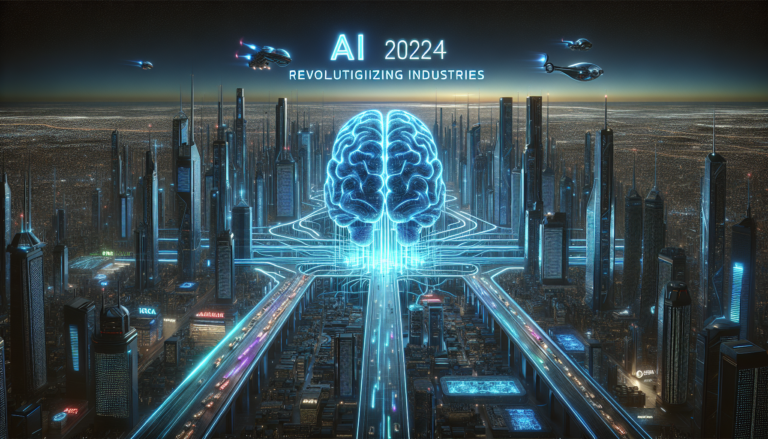AI: Shaping the Future
The artificial intelligence market is experiencing phenomenal growth, poised to revolutionize industries and economies worldwide.
AI Market Growth
Projected to reach $407 Billion by 2027, with an expected growth of 38.1% between 2025 and 2033.
Generative AI & Labor
25% of companies are adopting AI to address labor shortages.
US GDP Impact
AI is expected to contribute a net increase of 21% to the US GDP by 2030.
Global AI Adoption
China leads with 58% of companies deploying AI, followed by the US at 25%.
Steady Growth
Anticipated annual growth rate of 37.3% for AI between 2023 and 2030.
ChatGPT’s Rapid Rise
ChatGPT gained 1 million users within the first five days of its launch.
The artificial intelligence (AI) market is experiencing explosive growth, with projections showing it could reach a staggering $1.85 trillion by 2030. This rapid expansion is reshaping industries across the board, from healthcare to finance to manufacturing. But what’s driving this massive AI boom, and how will it impact businesses and workers in the years ahead? Several factors are fueling this meteoric rise, including advancements in machine learning, big data analytics, and cloud computing, which are making AI services more accessible and affordable. Additionally, AI server market growth is playing a crucial role, as the demand for powerful infrastructures capable of handling complex AI workloads intensifies. As businesses increasingly adopt AI-driven solutions, the competition to leverage these technologies effectively will likely transform workforce dynamics and operational strategies across industries.
The AI Revolution: By the Numbers
To understand the scale of AI’s influence, let’s look at some key statistics:
- The global AI market is expected to grow from $407 billion in 2027 to $1.85 trillion by 2030 – a 166% increase in just three years.
- 64% of businesses anticipate AI will boost their productivity.
- 97% of business owners believe AI tools like ChatGPT will benefit their operations.
- AI could contribute to a 21% net increase in US GDP by 2030.
These numbers paint a clear picture: AI is no longer just a buzzword or a futuristic concept. It’s a present reality that’s rapidly transforming how we work and do business.
How AI is Reshaping Key Industries
Healthcare: Streamlining Operations and Improving Patient Care
The healthcare industry is embracing AI to enhance efficiency and patient outcomes. A prime example is Thoughtful AI’s recent introduction of human-capable AI agents for healthcare revenue cycle management.
These AI-powered systems can:
- Process insurance claims faster and more accurately
- Reduce billing errors and improve cash flow
- Free up healthcare staff to focus more on patient care
Dr. Sarah Johnson, Chief Medical Officer at Innovate Health Systems, notes: “AI is allowing us to streamline administrative tasks, giving our medical professionals more time to focus on what really matters – providing high-quality care to our patients.”
Finance: AI-Powered Research and Analysis
The financial sector is leveraging AI to gain deeper insights and make more informed decisions. JPMorgan, for instance, has introduced an AI research analyst to assist its staff.
Benefits of AI in finance include:
- Faster and more accurate market analysis
- Improved risk assessment and fraud detection
- Personalized financial advice and product recommendations
Tech Giants: The AI Chip Race
Major tech companies are investing heavily in AI chip development to power the next generation of AI applications. Meta, Alphabet, and Tesla are all competing to create faster, more efficient AI processors.
This investment signals:
- A commitment to advancing AI capabilities
- Intense competition in the AI market
- Potential for breakthrough AI applications in the near future
The AI Job Market: Disruption and Opportunity

One of the most debated aspects of AI’s growth is its impact on employment. While there are concerns about job displacement, the reality is more nuanced:
- AI could displace up to 400 million jobs by 2030
- However, it’s also projected to create 97 million new roles
This shift underscores the need for workforce adaptation and reskilling. Jobs that involve repetitive tasks are most at risk, while roles that require creativity, emotional intelligence, and complex problem-solving are likely to grow.
Emerging AI-Related Career Opportunities
- AI Ethicist: Ensuring AI systems are developed and used responsibly
- Machine Learning Engineer: Designing and implementing AI algorithms
- AI User Experience (UX) Designer: Creating intuitive interfaces for AI-powered products
- AI Data Analyst: Interpreting complex data sets to inform AI strategy
- AI Implementation Specialist: Helping businesses integrate AI solutions
Challenges and Concerns in AI Adoption
Despite its potential, AI adoption faces several hurdles:
Regulatory Uncertainty
The lack of clear regulations around AI development and use is causing delays in some regions. For example, the launch of certain AI platforms in Europe has been postponed due to regulatory concerns.
Security Risks
Integrating AI into critical systems raises significant security concerns. As AI becomes more prevalent in operating systems and essential infrastructure, protecting against potential vulnerabilities becomes crucial.
Ethical Considerations
The rapid advancement of AI technology has outpaced the development of ethical guidelines. Issues such as bias in AI algorithms, privacy concerns, and the potential for AI to be used maliciously need to be addressed.
The Future of AI: Trends to Watch
As we look ahead, several key trends are likely to shape the future of AI:
1. Explainable AI (XAI)
As AI systems become more complex, there’s a growing demand for transparency in how these systems make decisions. XAI aims to make AI algorithms more interpretable and trustworthy.
2. Edge AI
Processing AI algorithms directly on devices (like smartphones or IoT sensors) rather than in the cloud is becoming more prevalent. This allows for faster processing, improved privacy, and reduced bandwidth usage.
3. AI-Human Collaboration
Rather than replacing humans entirely, many AI applications are being designed to augment human capabilities. This collaborative approach could lead to significant productivity gains across various industries.
4. Quantum AI
The combination of quantum computing and AI has the potential to solve complex problems at unprecedented speeds. While still in its early stages, quantum AI could lead to breakthroughs in fields like drug discovery and climate modeling.
How Businesses Can Prepare for the AI-Driven Future
To stay competitive in the age of AI, businesses should consider the following strategies:
-
Invest in AI education and training: Ensure your workforce is equipped with the skills needed to work alongside AI systems.
-
Start with small-scale AI projects: Begin by implementing AI in specific areas where it can provide immediate value, then scale up as you gain experience.
-
Prioritize data quality and management: AI systems are only as good as the data they’re trained on. Invest in robust data infrastructure and governance.
-
Stay informed about AI regulations: Keep abreast of evolving AI laws and guidelines to ensure compliance and ethical use of AI technologies.
-
Foster a culture of innovation: Encourage employees to explore how AI can improve their work processes and contribute to overall business goals.
The Road Ahead: Balancing Opportunity and Responsibility
The rapid growth of the AI market presents enormous opportunities for businesses and individuals alike. However, it also comes with significant responsibilities. As we navigate this AI-driven future, it’s crucial to balance innovation with ethical considerations and societal impact.
Apple’s recent commitment to the US guidelines for AI safety is a step in the right direction. It demonstrates that even as companies push the boundaries of what’s possible with AI, they’re also considering the broader implications of these powerful technologies.
As John Smith, AI Ethics Professor at Tech University, puts it: “The AI revolution is not just about technological advancement. It’s about shaping a future where AI enhances human capabilities and improves lives, while safeguarding our values and ethical principles.”
Ultimately, the success of AI integration will depend on our ability to harness its potential responsibly, ensuring that the benefits are widely shared and the risks carefully managed. By staying informed, adaptable, and ethically minded, we can work towards a future where AI truly serves the greater good.
Are you ready to explore how AI can benefit your business or career? Start by identifying areas where AI could enhance your operations or skills. The AI revolution is here – it’s time to be part of it.
AI Market Growth Projection (2023-2030)
This line chart illustrates the projected growth of the AI market from 2023 to 2030, highlighting its significant expansion.







